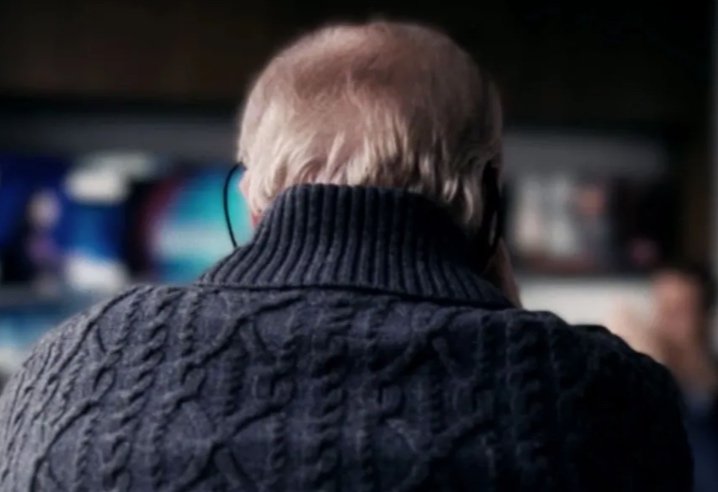Logan Roy’s fatal heart attack in the third episode of Succession’s fourth and final season, is a shocking feat of daring by its creator, Jesse Armstrong. It’s like mounting a production of King Lear where Lear dies one third of the way through the play. And yet it's completely in keeping with the show’s ability to defy its audience’s expectations. And like Logan Roy’s children, we the viewers are now left stunned, confused and wondering what we will do without him.
From the very beginning of the series, Armstrong explicitly shows that Logan Roy isn’t well. The first episode has him disoriented, wandering in the dark of his opulent brownstone and pissing in his walk-in closet, confusing it with his toilet. Later in that episode, he has a stroke in his helicopter. The title, “Succession,” makes it clear that the entire show is about all of Logan Roy’s friends and family desperately (but enthusiastically) positioning themselves to inherit his legacy (and money) after he dies. And yet, when he finally does, we are completely bereft and shocked, and like Roman, almost in denial.
As in real life, each child and loved-one—and “loved-one” is doing a lot of heavy lifting as a descriptor—has a singular variation on grief. Shiv is devastated by guilt that her last conversation with her father the night before was bitter and vengeful. Kendall’s reaction is more stoic, as he gains gravitas and finally becomes the elder statesman of the family. Connor is resigned: he never had his father’s love to begin with, so he really had nothing left to lose. And Roman is in complete disbelief: how is it possible that his Übermensch dad could cease to exist? And earlier that day, Logan forced Roman to fire maybe his only friend, Gerri, in a signature “divide and conquer” strategy to break up potentially perilous alliances, and as a way of testing Roman’s absolute devotion to him. Becauset he gave into his father’s demand, Roman has alienated Gerri irreparably and has no true shoulder to cry on. He is completely emotionally adrift.
Tom is genuinely crestfallen and shows sincere compassion for his estranged wife, but everyone else on the plane with Logan when he died is all business immediately afterward, trying to spin his death to save their asses.
Except for Logan’s paramour, Kerry, who reacts with inappropriate giggles at his death, so much so that Karl calls her “Chuckles the Clown,” a reference to the famous Mary Tyler Moore Show episode, “Chuckles Bites the Dust.” It’s her manic response to the whole world she has ruthlessly constructed through her alliance with Logan against his kids that she now realizes was just a house of cards that cannot support her weight. Humpty Dumpty will have a great fall.
Both Logan’s stroke and his eventual heart attack are bookended by birthdays: the first episode, “The Celebration,” takes place on his eightieth birthday, and his death happens on Connor’s wedding (the title of the episode) day, the day after Logan’s eighty-fourth birthday. As with every party and wedding that the Roys attend and throw, joy and togetherness are not meal choices on the dinner menu.
Everything about “Connor’s Wedding” is potent and yet subtle. Shiv, Roman and Kendall are all wearing black, somewhat inappropriate for a springtime celebration of love, but clairvoyant for an unexpected funeral. Logan's roaring, fiery speech standing on a box in the middle of the ATN newsroom to rally his troops, like a perverse, expletive-laden soliloquy out of Henry V, makes his imminent, sudden death even more improbable and stark. And the fact that we never actually see the heart attack, and that we hardly see Logan while he’s dying or even after his death is significant: this ferocious, merciless, brilliant, seemingly omnipotent father and titan of industry is reduced to an out-of-focus, partially naked body under a sheet on his private plane, flying in the liminal space over International waters, far from home. All his billions of dollars, and his political, societal and financial influence over friends, family and foes alike cannot save him from the human body’s fragility and the indignity of death—the great leveler of us all.
Despite Logan’s cruelty, disloyalty and inability to feel and express love, we cannot help having sympathy for this mostly despicable man who dies not with his children—who love him in their own deficient, deeply compromised way—but with people who were bought and paid for with blood money to serve him and his corrupt businesses. And once he is merely a body, he has no more power over them. Their loyalty to him was based solely on fear, and when he’s dead, their fear dissipates instantly into cold calculation and self-preservation.
How will the rest of the final season play out? We, Kendall, Connor, Shiv and Roman have no idea. How will we exist without the terrible, awesome father figure who dominated their lives and this show, about whom we care despite knowing better? We all have lost a worthy adversary: the man whose massive, tyrannical, back loomed center stage during the opening credits of each episode. We, like in the flashbacks of the Roy siblings as children, will always be turning our heads and looking for the epic, Shakespearean figure of Logan Roy, whose face we will never see again.



